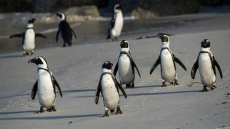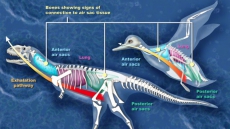Having a companion in old-age is good for people and, it turns out, might extend the chance for life on certain earth-sized planets as well.
Astronomers have found that for earth-sized planets, the gravitational pull of an outer companion planet could generate enough heat - through a process called tidal heating - to effectively prevent the internal cooling, and extend the inner world's chance at hosting life.
"Tidal heating results from the gravitational push and pull of the outer companion planet on its closer-in neighbour," said astronomer Rory Barnes from University of Washington.
The effect happens locally, so to speak, on Jupiter's moons Io and Europa.
The researchers showed that this phenomenon can take place on exoplanets - those outside the solar system - as well.
"When the planet is closer to the star, the gravitational field is stronger and the planet is deformed into an American football shape. When farther from the star, the field is weaker and the planet relaxes into a more spherical shape," Barnes noted.
This constant flexing causes layers inside the planet to rub against each other, producing frictional heating, he added.
The combined effect of the ancient planet's own tectonics and tidal heating generated by the outer companion might allow such planets to host some of the longest-lived surface habitats in the universe.
"Perhaps in the distant future, after our sun has died out, our descendants will live on worlds like these," Barnes speculated.
The paper was published in the journal Monthly Notices of the Royal Astronomical Society.





